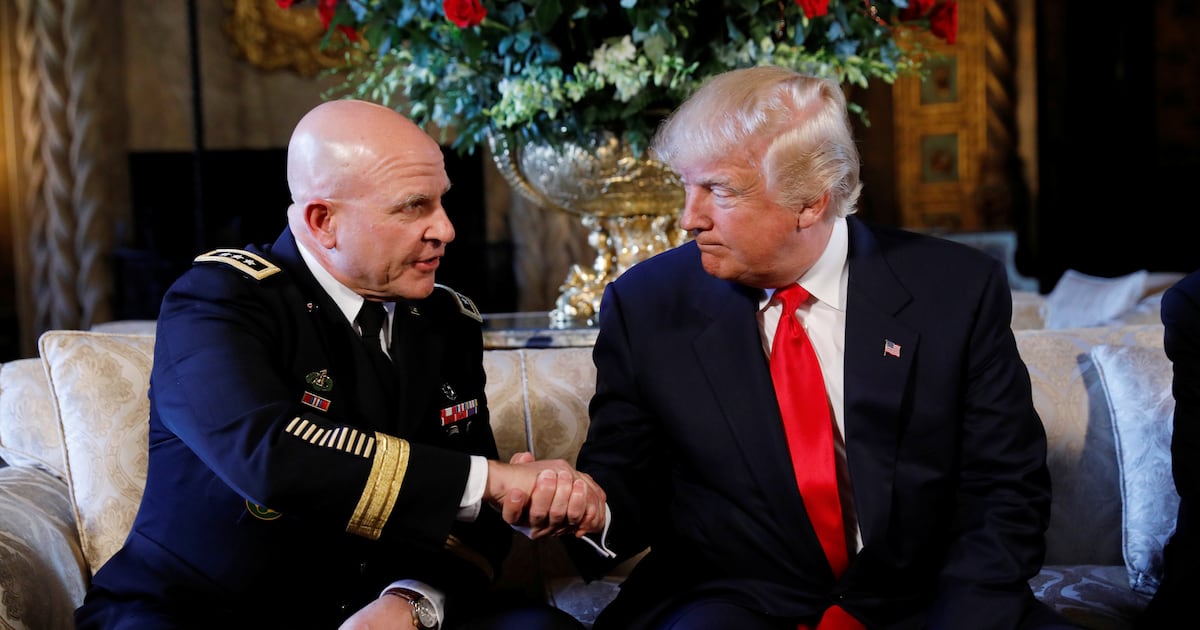Fox News host Harris Faulkner gave President Donald Trump every opportunity to calm tensions over racist police brutality during an interview in Dallas that aired, in part, Friday afternoon. He either had no interest in doing so or was ultimately incapable.
Faulkner began her interview by asking Trump if he was the right president to “unite all of us, given everything that’s happening right now.”
“Well, I certainly think so and I certainly hope so,” Trump replied. He proceeded to call the “riots” over the police killing of George Floyd “unnecessary,” blaming mayors and governors for failing to keep things under control. “You can call them protesters, you can call them riots, there were different nights, different things,” he said.
After telling Trump that “we’re intelligent enough to know the difference in this country” between “protesters and rioters,” Faulkner asked the president what he thinks the protesters “want” and “need” from their leaders right now.
Instead of addressing their legitimate outrage about systemic racism and police brutality, Trump suggested that many of them “just didn’t know” why they were out on the streets. “They were there for a reason, perhaps, but a lot of them really were there because they were following the crowd,” he said. Allowing that police killing unarmed black men and women is a “terrible thing,” Trump told Faulkner, “You know that better than anyone would know it.”
When Faulkner pushed him to speak directly to those protesters’ concerns, he said, “I think it’s a shame, I think it’s a disgrace and it’s gotta stop.” But then he added, “At the same time, we have incredible people in law enforcement and we have to cherish them and take care of them.”
While Trump said he doesn’t “like” police using chokeholds, he went on an extended rant defending their use. “You grow up and you wrestle and you fight, or you see what happens,” he said. “Sometimes when you’re alone and you’re fighting someone’s who’s tough and you get someone in a chokehold, what are you going to do?” He said cops can’t just “let go and start all over again” because they’re not allowed to perform that maneuver.
“The concept of chokeholds sounds so innocent, so perfect,” Trump added. “With that being said, it would be, I think, a very good thing that generally speaking, it should be ended.”
“That’s interesting,” Faulkner replied, before moving on to ask the president about his tweet that read, “when the looting starts, the shooting starts.” She asked, “Why those words?” When Trump said it’s an expression that he’s heard over the years, she interrupted to ask, “Do you know where that comes from?”
“I think Philadelphia. The mayor of Philadelphia,” Trump said tentatively.
“No, it comes from 1967,” Faulkner corrected him, going on to explain that it was the chief of police in Miami. “He was cracking down. And he meant what he said.”
Instead of taking in what Faulkner said, Trump talked past her, saying, “Well, it also comes from a very tough mayor,” referring to former Philadelphia police chief and Mayor Frank Rizzo, whose statue was torn down by city authorities last week. Trump insisted that he didn’t mean the tweet as a “threat,” even if that’s how people took it.
Trump also denied that planning his first big campaign rally since the coronavirus pandemic started, on Juneteenth in Tulsa, Oklahoma, was an intentional racist dog whistle, but instead he views it as a “celebration.”
“Don’t think about it as an inconvenience, think about it as a celebration,” he said of the June 19 rally. “It wasn’t done for that reason, but it’s an interesting date.”
At another point in the chat, Trump boasted that “I think I’ve done more for the black community than any other president—and let’s take a pass on Abraham Lincoln because he did good although it’s always questionable, you know in other words the end result,” before Faulkner interrupted to say, “Well, we are free, Mr. President.”
Trump did not further elaborate on what, in particular, about Lincoln’s legacy was “questionable.”
Later, Faulkner asked Trump if he can be both the “law and order president” and “consoler-in-chief.” Without missing a beat, the president said, “Yes, I think so.”





